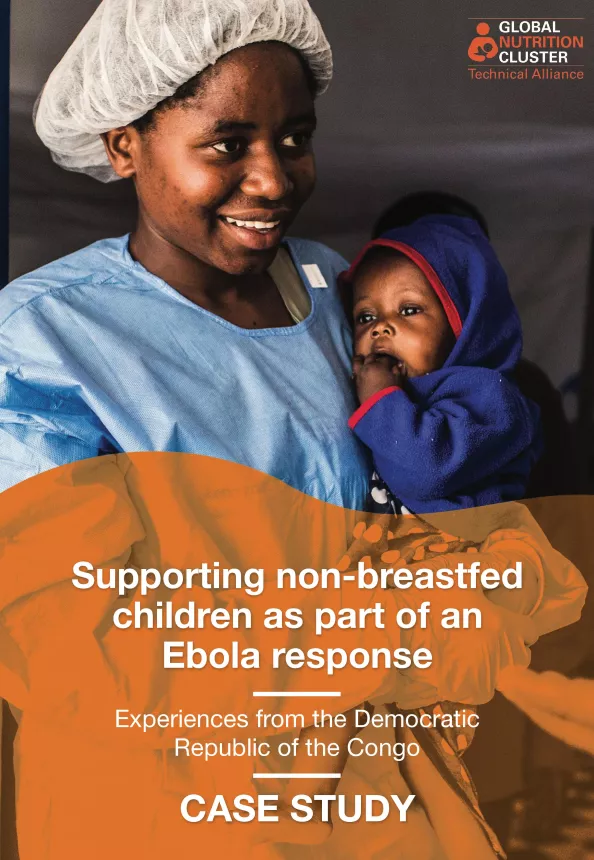Supporting non-breastfed children as part of an Ebola response - Experiences from the Democratic Republic of the Congo
Publication details
About this brief
In every emergency, it is necessary to assess and act to protect and support the care and nutrition needs of both breastfed and non-breastfed infants and young children (Operational Guidance on Infant and Young Child Feeding in Emergencies, 2017). This case study focuses on support for nonbreastfed children in the context of Ebola as this is a relatively new area of programming with limited documentation to date. In 2019, the Global Nutrition Cluster (GNC) Technical Alliance1 (formally GTAM) examined technical challenges commonly faced by Nutrition in Emergencies (NiE) practitioners and the gaps in knowledge and guidance contributing to these challenges. The related report2 identified "strong global guidance on the management of nonbreastfed children during emergencies" as a priority technical gap, highlighting challenges that practitioners frequently experience. During the 2019 GNC Annual Meeting, an urgent call was put out for the revision of global guidance on Ebola Virus Disease (EVD) to ensure that Infant and Young Child Feeding in Emergencies (IYCF-E) is adequately integrated. This technical brief documents the DRC’s experience of supporting non-breastfed children during an EVD epidemic to inform future guidance and programming in this gap area. This case study was developed through a desk review of available resources and policies as well as key informant interviews with UNICEF, WFP, ADRA and Ministry of Health personnel involved in the response.
1 https://ta.nutritioncluster.net/
2 https://www.ennonline.net/resource/baselinetechnicalneeds2019
